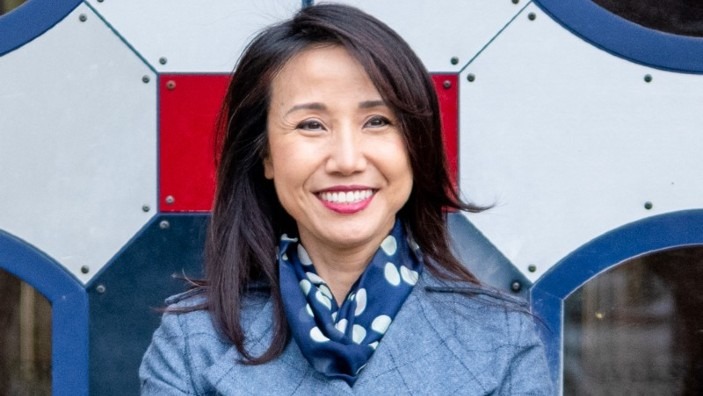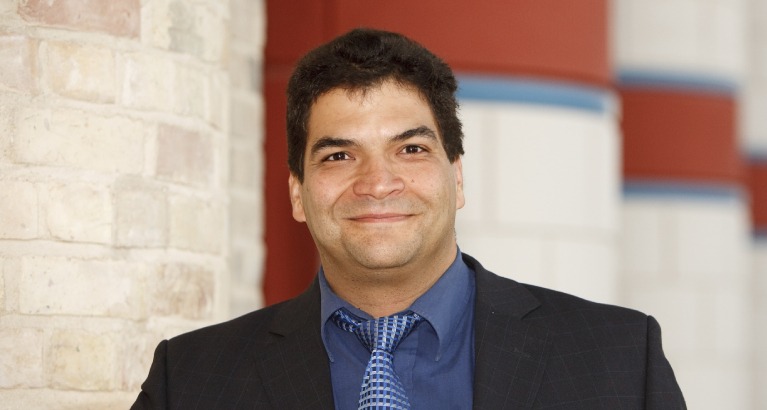The global stress landscape

Over 90,000 books on Amazon deal with stress, including how to manage it, master it, control it, get rid of it, and recover from it. Some proven methods that mitigate stress include meditation, breath work, exercise, visualisation, green space or virtual green space, counselling, complementary therapy, changing your mindset, and culling toxic friends, family and colleagues (The Science of Stress Relief, editorial, 2022)1.
Mindfulness, in particular, is an effective way to reduce stress symptoms (Fazia, T. et al, 2023)2. Some tools work for some but not for others. The sheer volume published on this topic and suggested tools dispute the myth that everyone is affected by or deals with stress the same way.
Two other myths are that stress is the problem and that life would be great if stress were eliminated. Visiting executive coach Dr Helena Kim has been working with Cambridge MBAs, and here examines a few myths we can cognitively disarm before we practice behavioural stress management tools to maintain our mental health.
The viewpoint: a stressful example
Let’s look at one example of stress, a traffic jam. Everyone responds differently to being stuck in traffic. How one responds depends on one’s patience or attitude. On one hand, when some of us are late for an appointment and feel rushed, our reaction may be impatience, frustration and even rage. On the other hand, some people choose to react differently to the same situation, and they merely feel annoyed or inconvenienced. Different people react or choose to react to stressors differently.
Stress is conditional, and quickly accepting what you can control, whether it’s a traffic jam or an imminent deadline, will help you relate to your stress with less angst. In reality, your irate reaction will not make the traffic go any faster or extend your deadline. Your angry state or impatience will only result in amplifying the size of the situation and further heightening your reaction. The bigger you make a stressor, the more upset you will get. Even having that insight will help you feel more in control. You decide how big or small you’re going to make that stressor and the level of your reaction. Your self-talk can sound like, ‘I’m making this bigger than it really is. This is not helping me. What can I really control here?’
This is meta-processing, looking at the situation and your reaction from a balcony view, and acknowledging what is reality. This disruption of thought or feeling buys you brain time to take a different route than the habituated automatic danger-reaction pathway.
Another question that can help us put things into perspective is, ‘Am I going to allow this to _______ ? Ruin my day? Ruin my week? Ruin my month? Ruin my life?’ The operative term in that question is allow which makes you the author, not the victim.
Is stress really to blame for our pain?
Another myth we can demystify is that stress is to blame for our pain. For example, if you are waiting to hear back about a job interview you just had a few days ago. You may feel impatient and frustrated, replay the interview or worry you didn’t get the job. We can awfulise or catastrophise our stress when we feel anxious, and when we feel anxious, we awfulise. It’s a vicious cycle.
Psychologically, anxiety can stem from uncertainty, the unknown or when we think we’re losing control. Loss of control implies we had control. The reality is that you are trying to know what can’t be known now, and you don’t have control over the outcome, like how the interview panel will decide. According to Bernstein, the author of Breaking the Stress Cycle3, it’s not the stress that is awful or painful, but your refusal to accept what’s real or true. We have difficulty accepting reality or the truth when we believe we should get our way, or we wish we could control the outcome of events. Accepting what we can or cannot control may help us to be grounded and wait for the event loop to close because sometimes it’s the closure we need.
Stress can be positive too
Stress can be positive. This positive tension is the energy that stimulates us. It gets us to do things we want and need to feel accomplished and purposeful. This optimum tension spurs us to get things done and grow. We need the right amount of stimulation. If too little, we’d be bored; if too much, we’d be overwhelmed. With the right amount of stress, we can live a motivated and driven life. Proven behavioural tools to reduce damaging negative stress, like exercise, meditation, mindfulness, meaningful social support, etc can help us keep our stress monitor working to our advantage.
On a closing note, we can train ourselves to respond more proactively to stressors using some of these cognitive and behavioural tools. We would do more of it if we first believed the gain from practising these tools outweighs the false security of worrying and stressing.
About Helena
Dr Helena Kim is an executive coach, interpersonal dynamics expert and Cognitive Behavioural specialist. Helena has worked with a wide range of blue-chip clients over her 25-year career. Through intensive success and wellbeing coaching and training, Helena helps MBA students and those at Cambridge Judge, with personal development and resilience-building in preparation for leadership and career progression. Dr Kim offers dynamic support when professional progress and personal development converge with the intensity of a rigorous one-year MBA programme.
Related publications
1 Editorial (2022) “The science of stress relief.” The Lancet
2 Fazia, T. et al (2023) “Improving stress
3 Bernstein, A. (2021) Breaking the stress cycle: 7 steps to greater resilience, happiness, and peace of mind. Atria Books
Related articles
Five Cambridge MBA students work on their Global Consulting Project with the top German broadcaster RTL Deutschland to apply generative artificial intelligence to advertising and other key projects.
Programme news
MBA lecturer Michael Barrett drives digital transformation
Professor Michael Barrett, Vice-Dean at Cambridge Judge Business School, drives research and teaching on digital transformation, AI and fintech. He helps MBA students tackle real world challenges and explore how emerging technologies reshape business ecosystems. This article is part of our MBA Teaching Spotlight series.…
Programme news
Career opportunities for our latest MBA graduates
Despite economic uncertainty, our MBA graduates have secured strong career opportunities, reflecting their resilience and adaptability. As we publish the Cambridge MBA Employment Report 2025, Cambridge Judge Business School remains committed to preparing students for success in a dynamic global market.





